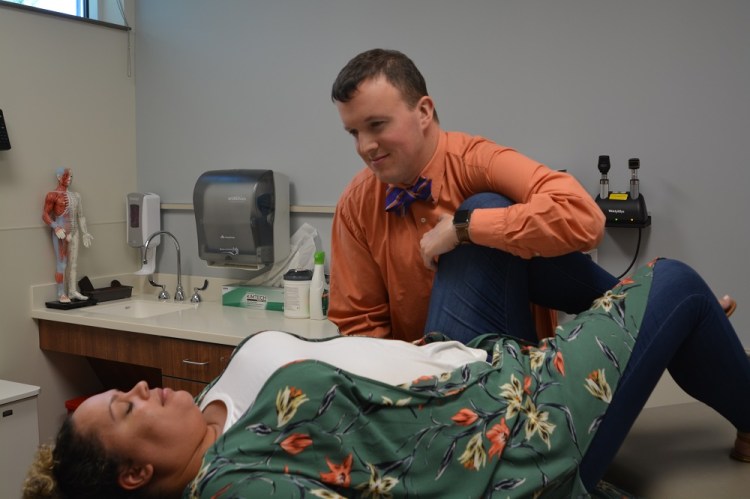If you’ve grown up with what is commonly called “traditional” or “Western” medicine, you might be surprised to have a doctor ask you a question like “What do you think is at the root of this health condition?” But that’s how the conversation might go when you visit an integrative health practitioner.
Unlike conventional medicine practiced in the US that often focuses on the body alone, integrative health considers the whole person, viewing body, mind, and spirit as equally important components of wellness. It’s a common misperception that integrative practitioners avoid conventional practices and medications. In fact, integrative medicine blends conventional Western medicine with complementary and alternative approaches, using an a-la-carte style that significantly expands the menu of options to include acupuncture, breathwork, diet and supplements, manipulation, and much more.
What’s different?
“The whole-person approach gives me a broader set of tools for working with patients,” says Sean (Tyler) O’Sullivan, DO, an integrative medicine physician at the Martin’s Point Scarborough Health Care who is board certified in both family and osteopathic medicine. “This allows me to help them find relief and work together toward a healthier way of life.”
Patient–provider collaboration is another hallmark of integrative medicine. “It’s a team approach,” says O’Sullivan, who completed his fellowship with Maine Medical Center and University of Arizona Center for Integrative Medicine (founded and directed by the internationally recognized Andrew Weil, MD). “We find common ground and work together, based on your goals and any obstacles that may be tripping you up.”
Common uses for integrative medicine
Integrative medicine could be the key for people with health issues like anxiety, depression, chronic fatigue syndrome, fibromyalgia, high cholesterol and high blood pressure that haven’t responded to traditional medicine.

Image provided by Martin’s Point Health Care
Say you’re struggling with anxiety. For relief, some traditional physicians may turn to behavioral therapy, medication, or a combination of the two. An integrative medicine physician might also introduce acupuncture, aromatherapy, deep breathing exercises, meditation, and more.
“It’s not forgoing Western medicine, but adding other things that might help,” O’Sullivan explains. “Patients with end-stage kidney disease can’t safely take ibuprofen, for example, but we can suggest they take turmeric supplements (powder made from the turmeric plant) that also has anti-inflammatory properties.”
About four in 10 US adults rely on alternative or complementary medical approaches, say reports from the National Institutes of Health. Because integrative medicine includes everything from medications to acupressure to tai chi, it’s a challenge for experts to pinpoint where and how quickly the field is growing, though most signs point to ongoing expansion.
Think this approach might be right for you?
Acupuncture, osteopathic manipulative medicine, nutrition, and general health and wellness consultations are available at the Martin’s Point Scarborough Health Care Center, which is currently welcoming new patients. To learn more about integrative health or to make an appointment with Dr. O’Sullivan, give them a call at (207) 799-8596.
Comments are not available on this story.
Send questions/comments to the editors.


